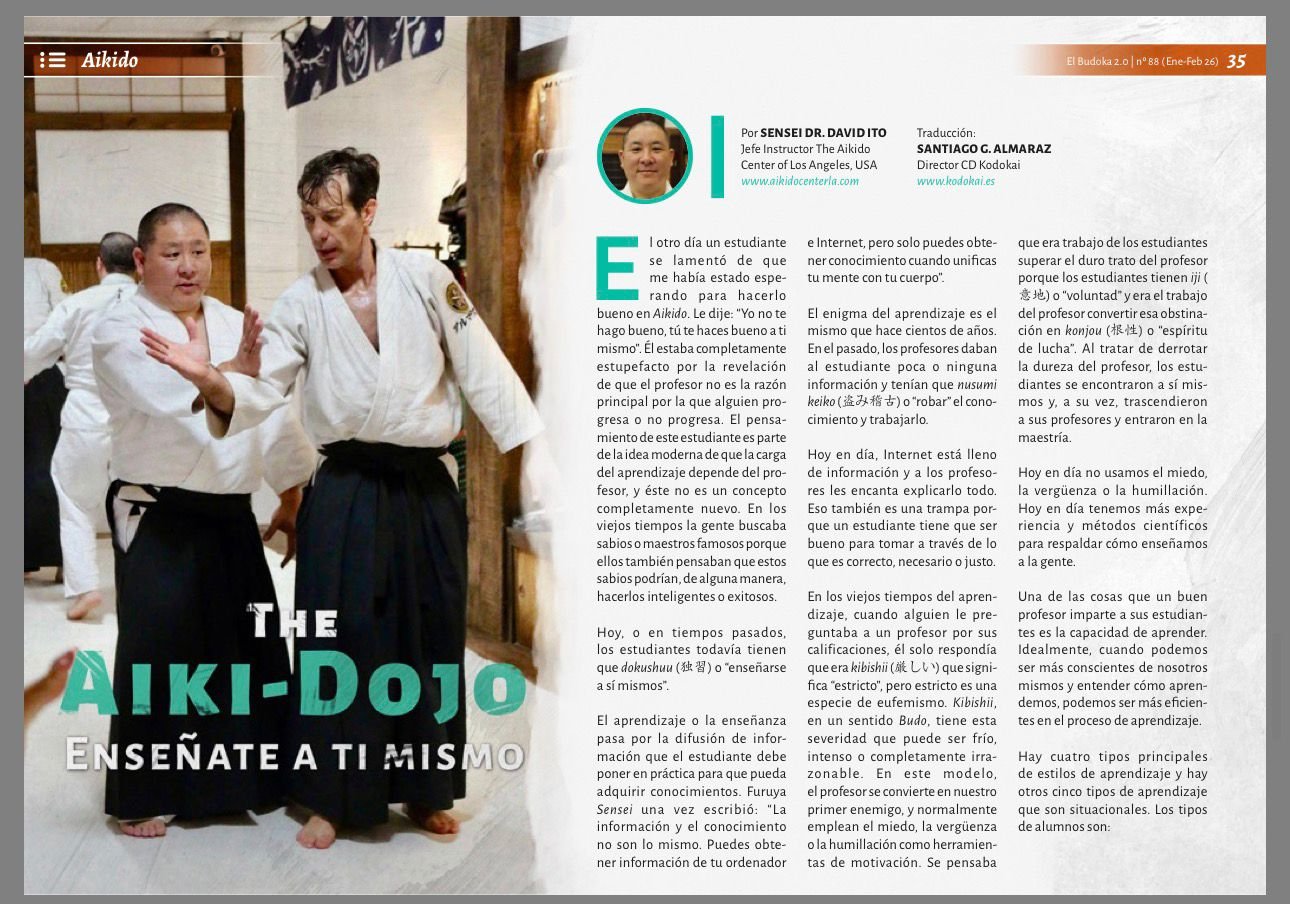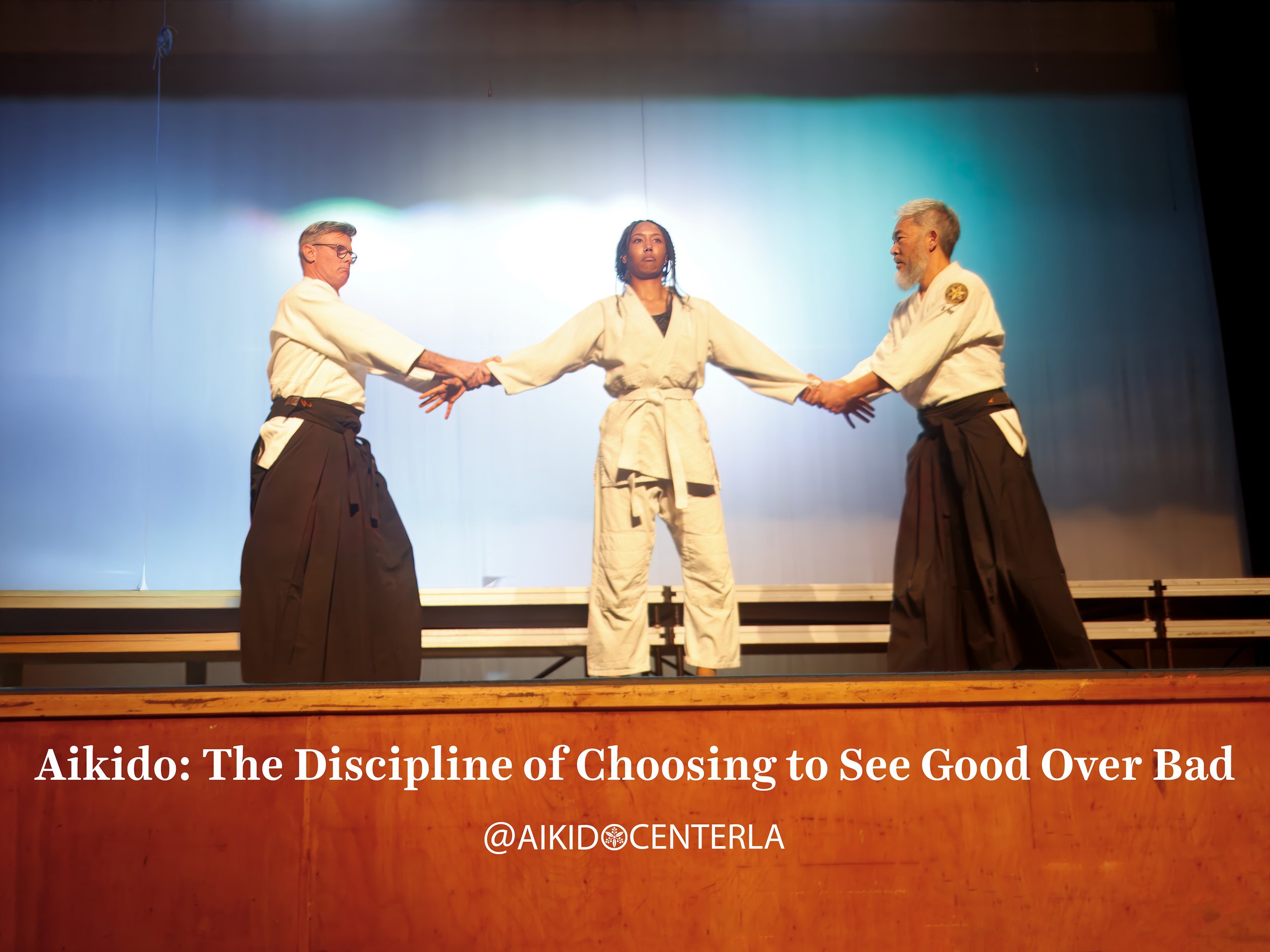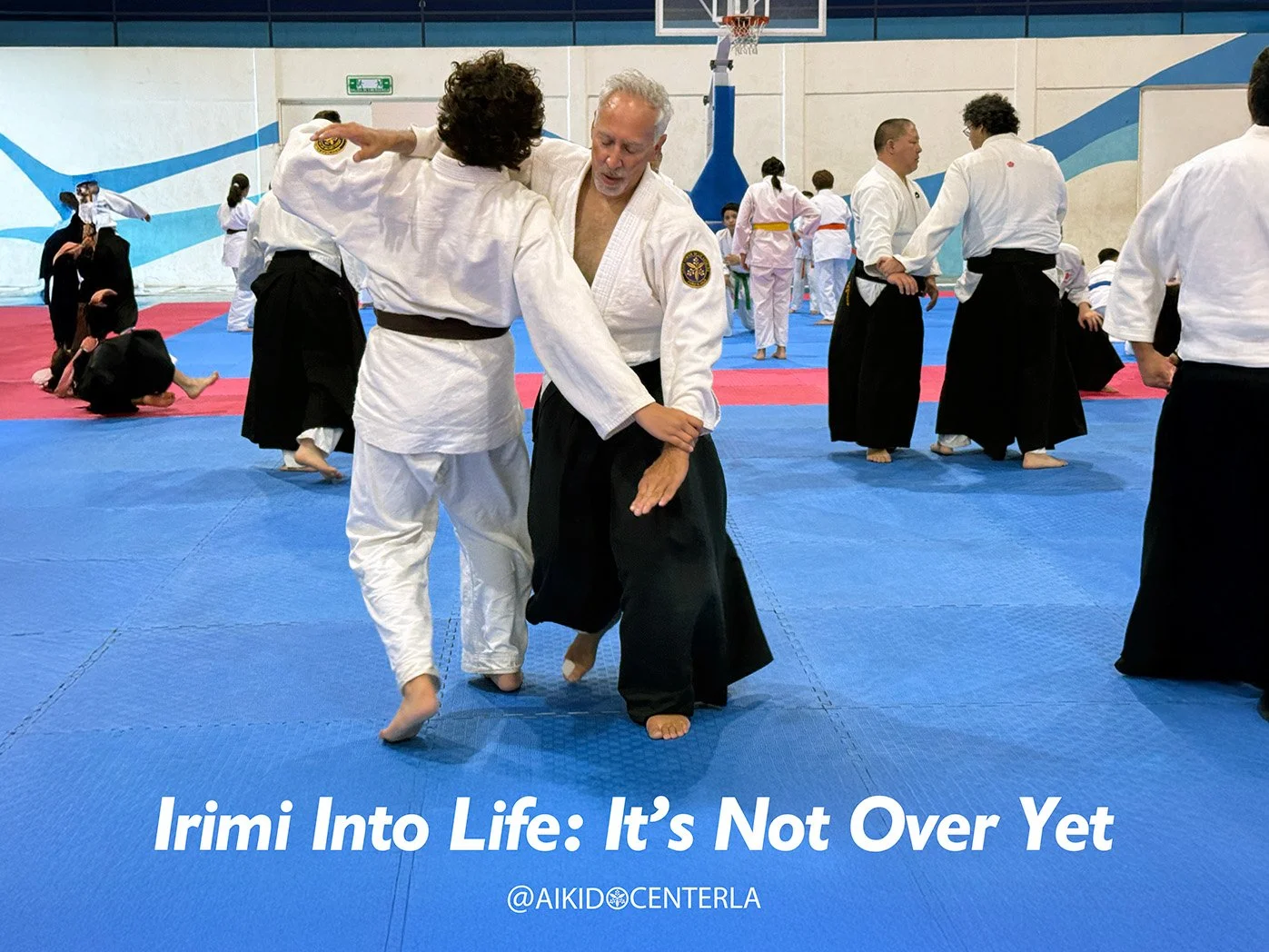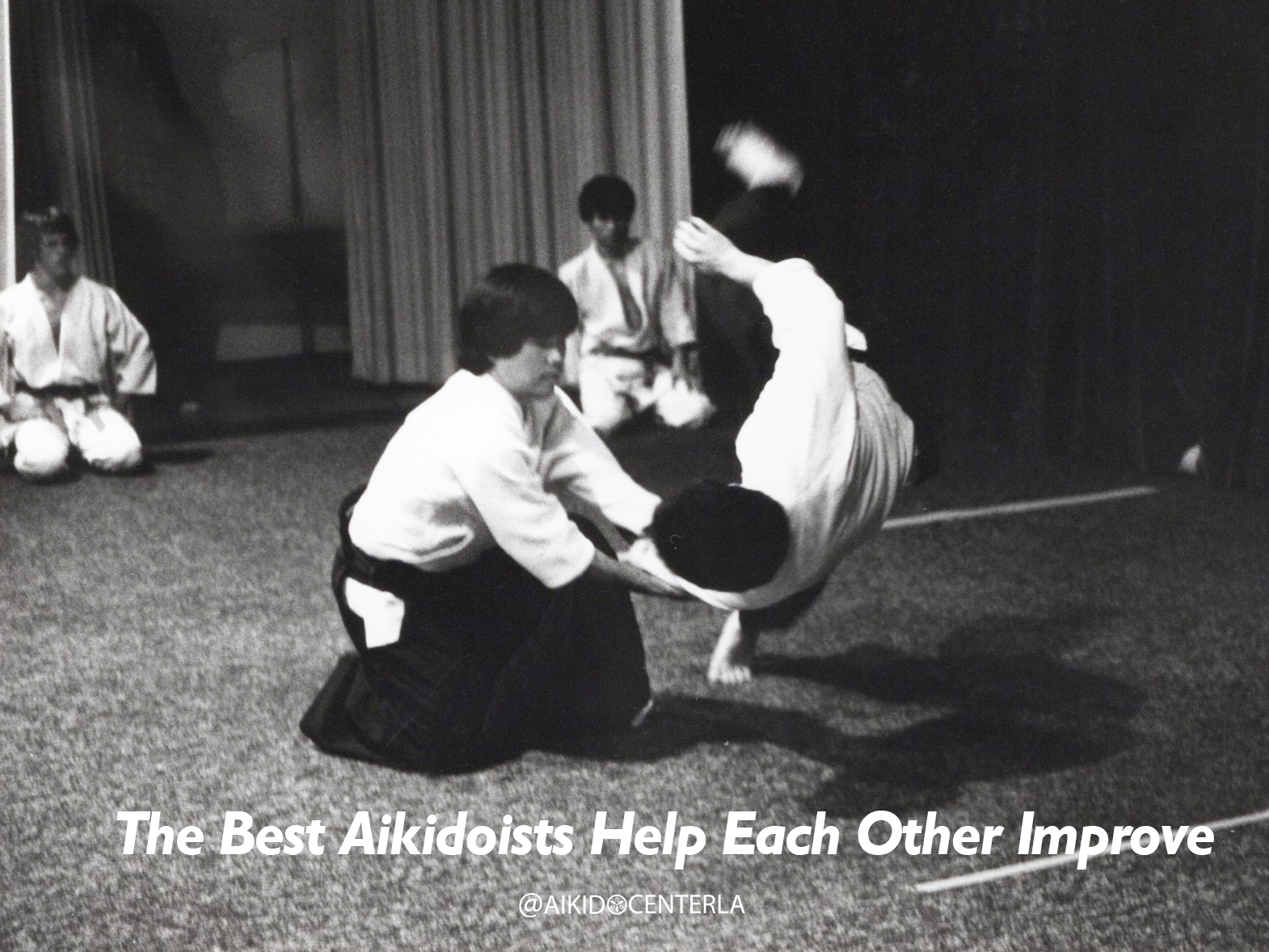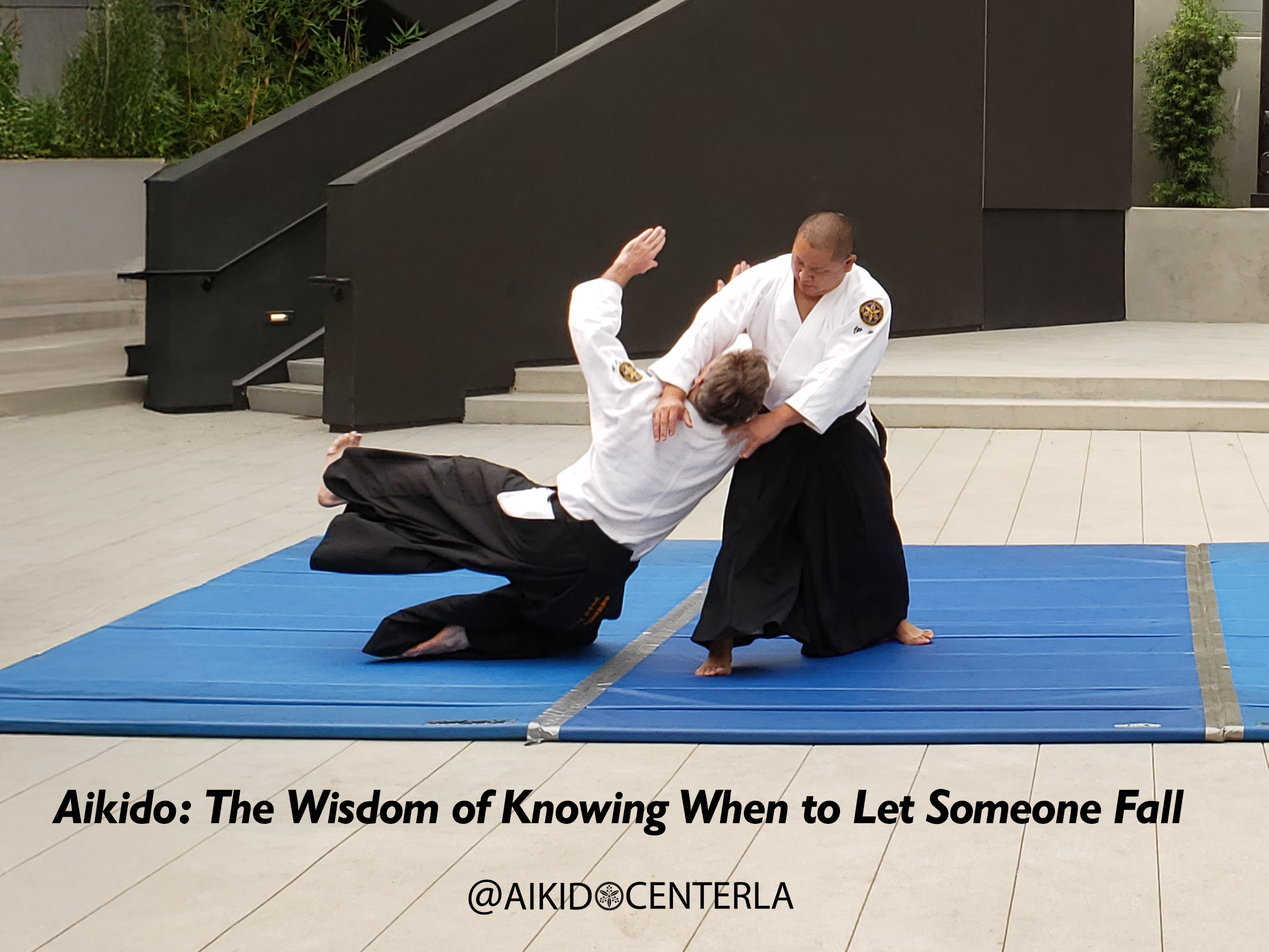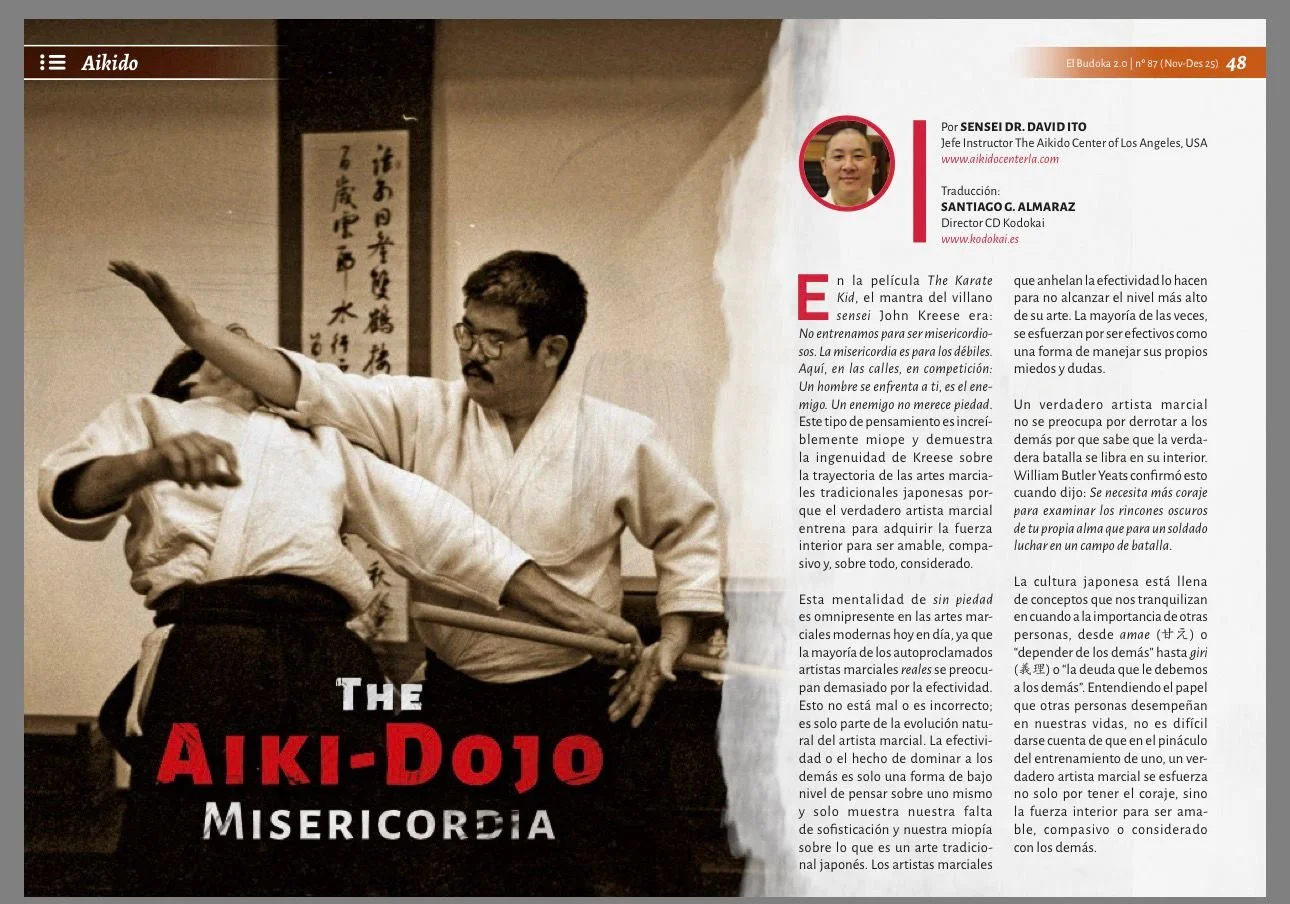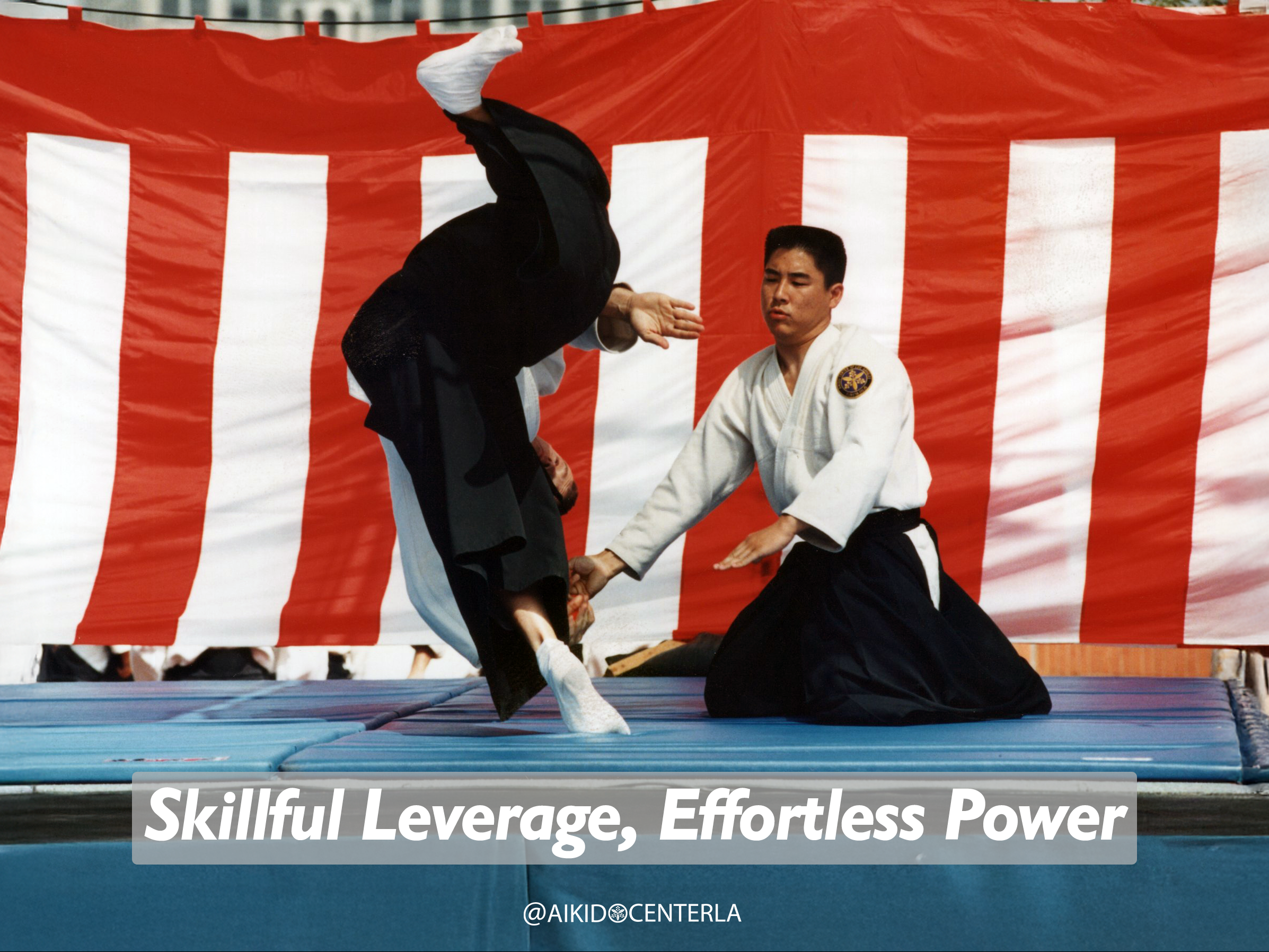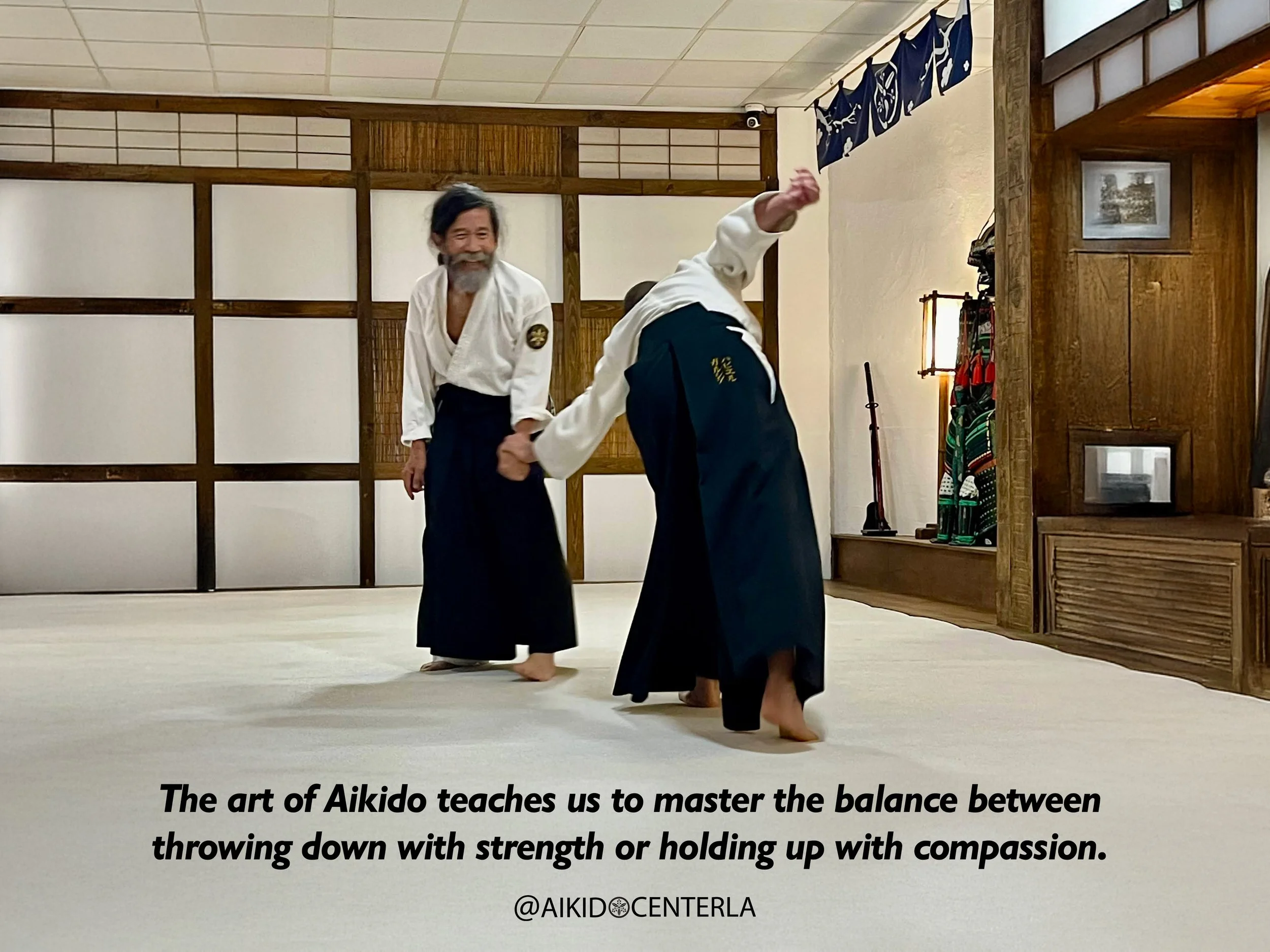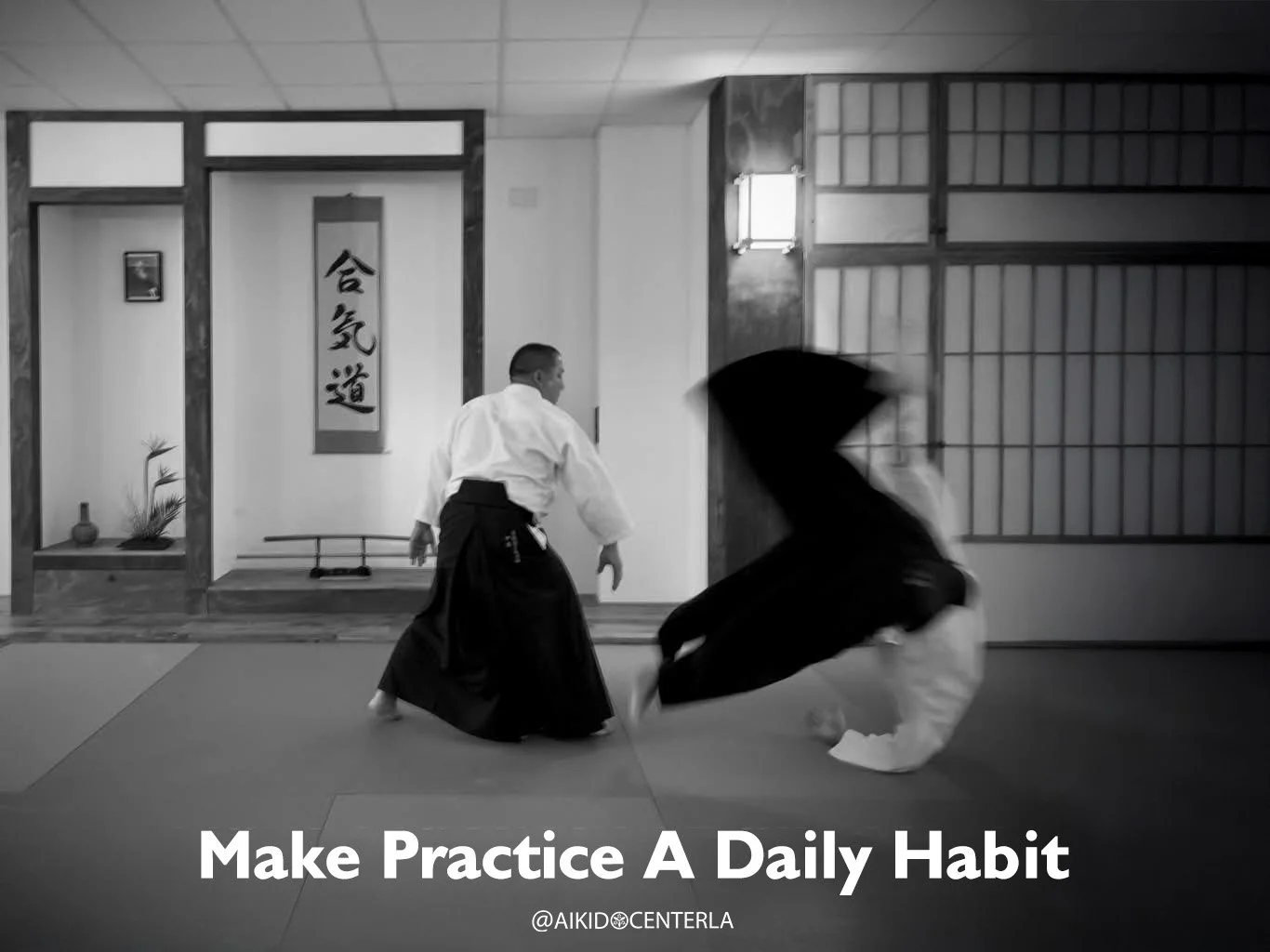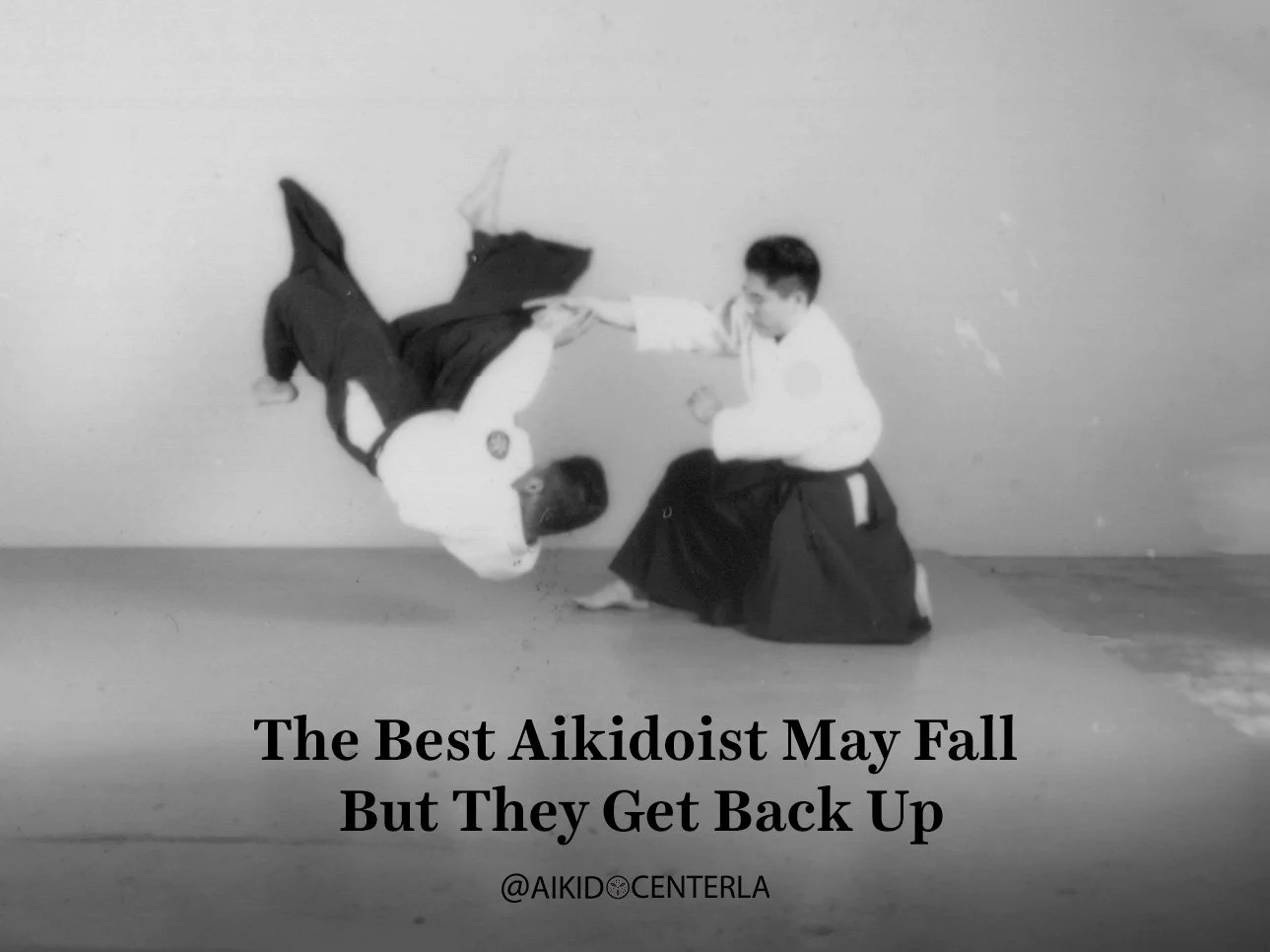Note: This article originally appeared in the Spanish language magazine El Budoka. It was kindly translated by Santiago Almaraz Sensei. Read it here in Spanish
Teach Yourself
The other day, a student lamented that he has been waiting for me to make him good at Aikido. I told him, “I don’t make you good, you make yourself good.” He was completely dumbfounded at the revelation that the teacher is not the primary reason why someone gets good or not. This student’s thinking is part of the modern idea that the onus of learning is placed upon the teacher. This is not an entirely new concept. In the old days, people sought out famous sages or teachers because they too thought that these wise people could somehow make them smart or successful. Today, or in times gone by, students still have to dokushuu (独習) or “teach it to themselves.”
Learning or teaching is about the dissemination of information that the student would in turn put into practice so that they can become knowledgable. Furuya Sensei once wrote, “Information and knowledge are not the same. You can get information from your computer and the internet, but you can only get knowledge when you unify your mind with your body.”
The conundrum of learning is the same as it was hundreds of years ago. In the past, teachers gave the student little to no information and they had to nusumi keiko (盗み稽古) or “steal” the knowledge from them and really put in the work outside of training. Today, the internet is filled with information and teachers today love to explain everything. That too is a trap because a student has to get good at sifting through what is correct, necessary or right in the moment and still have to put in the work to figure it out.
In the old days of learning, when someone asked a teacher for their qualifications, they would only reply that they were “kibishii.” Kibishii (厳しい) means “strict,” but strict is kind of an understatement. Kibishii, in a Budo sense, has this severity to it that can be cold, intense, or completely unreasonable. In this model, the teacher becomes our first enemy, and they typically employ fear, shame, or humiliation as their motivating tools. It was thought that it was the students job to overcome the teacher’s harsh treatment because students have iji (意地) or “willfulness” and it was the teacher’s job to turn that obstinacy into konjou (根性)) or “fighting spirit.” In trying to defeat the teacher’s harsh treatment, the students found themselves and in turn transcended their teachers and stepped into mastery.
Nowadays, we don’t use fear, shame or humiliation. Today, we are more experienced and have scientific methods to back up how we teach people.
One of the things a good teacher imparts in their students is the ability to learn. Ideally, when we can be more self-aware and understand how we learn, we can be more efficient at the process of learning.
There are four main types of learning styles and there are another five types of learning that are situational.
The types of learners are:
Visual learners learn best by seeing it.
Auditory learners need to hear it.
Reading/writing types of learners prefer to engage their left brains in the process of learning.
Kinesthetic learners who want to use their right brain must do it to learn it.
Social learners learn things best in a group setting.
Solitary learners learn more easily alone through self-study.
Analytical type of learner needs a logic structure or a plan that makes sense to them.
Verbal learners have to talk out loud about something to learn it.
Naturalistic learners learn best outside while connecting with nature.
How do you know what your primary type of learner you are? I ask people, “If you needed directions, how would you want me to give you the directions?” Visual learners want me to draw them a map or write out the steps so that they can see it. Auditory learners only need me to tell them how to get there. Reading or writing types want to copy my map or write down what I say. Kinesthetic learners only need to be taken there once and they can remember it. Whichever method resonates with you is your primary style of learning. From there you combine that with other styles of learning or situational types that suit you
In class, we can touch base with many different learning styles at the same time such as visual, auditory, kinesthetic, analytic, social and sometimes even naturalistic. Coming to class and receiving instruction from one’s teacher is the tried and true method of learning. The teacher distills down what is necessary and gives the student the foundations and parameters and points them in the right direction.
From there, the student can just show up and wait for osmosis to make them good, but that way is devoid of passion. The fire and the passion come from our desire to know. In trying to figure it out, we spend time thinking about it or moving our bodies outside of class. There is a great scene in both the Japanese and American versions of Shall We Dance, where the main character is caught practicing the dance moves when he thinks nobody is watching. He does this because he is passionate to learn and in doing so works it out and teaches it to himself. As the Confucian philosopher Xunzi once stated “Tell me and I forget, teach me and I remember, involve me and I learn.”
The word sensei (先生) is literally translated as “one who comes before.” It does not mean god or deity nor does it imply that this person has some sort of supernatural power. The teacher is merely a guide illuminating a path for us that helps bring us to our greater selves. My calligraphy teacher Kuniharu Yoshida Sensei said, “Having a teacher is the ultimate shortcut because they tell you what to look at, where to look and how to look at it.” The best know that no one is coming to save them and that success in whatever endeavor we choose is solely based upon putting in the work and how we learn to teach it to ourselves.


